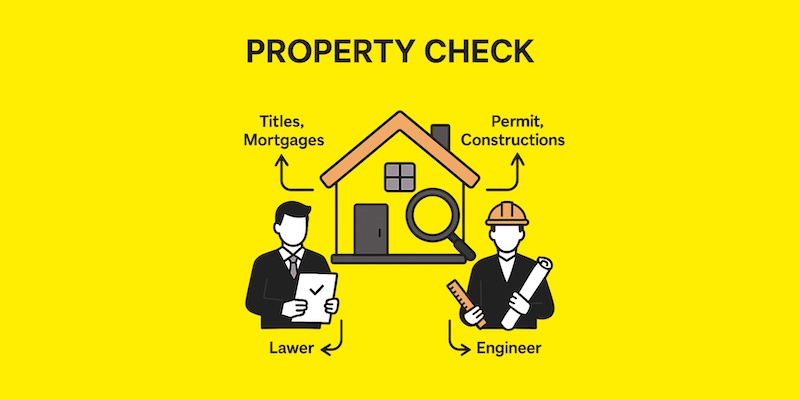)%20(2)%20(1).png)
The process of buying and selling real estate in Greece is characterized by a high degree of complexity, mainly due to the large number of required documents and the dozens of factors that affect them. Ensuring that all necessary and accurate supporting documents have been collected is one of the main causes of delays or even cancellations of a sale.
Key factors that affect the required documentation:
If we combine all of the above key factors, along with other secondary ones covered by the titlos.com digital platform, up to 1,728 different combinations of required documents may arise — and that’s just for the property side. Every case presents its own particularities, and complexity increases based on the profile of the parties involved.
In this particularly complex context, the use of digital tools such as the titlos.com platform has become essential. With a guided approach and a strong focus on accuracy, titlos.com helps property owners, real estate agents, lawyers, notaries, and buyers to:
Complexity cannot be eliminated. But it can be organized and simplified — when you have the right tool.
)%20(9).png)
In 99.9% of real transactions, buyers and their lawyers require all these documents before even considering moving forward. The shiny state platform? It ignores all of this difficult, time-consuming preparation.
Read more
If you are thinking of buying property in Greece, remember this: the legal check is everything. Otherwise, you might end up with a house that “belongs” both to the seller and… his former partner, has three mortgages, and an uncle living inside “until he finds something better.”
Read more
In Greece, selling a property often feels like a marathon with no finish line. From the moment a buyer is found until the transfer takes place, an average of 7 months passes.
Read moreΗ titlos.com χρησιμοποιεί cookies απαραίτητα για την λειτουργία της ιστοσελίδας, καθώς και cookies στατιστικών και επισκεψιμότητας που βοηθούν στη συνεχή βελτίωση των υπηρεσιών μας. titlos.com uses cookies necessary for the operation of the website, as well as statistical and traffic cookies that help to continuously improve our services.